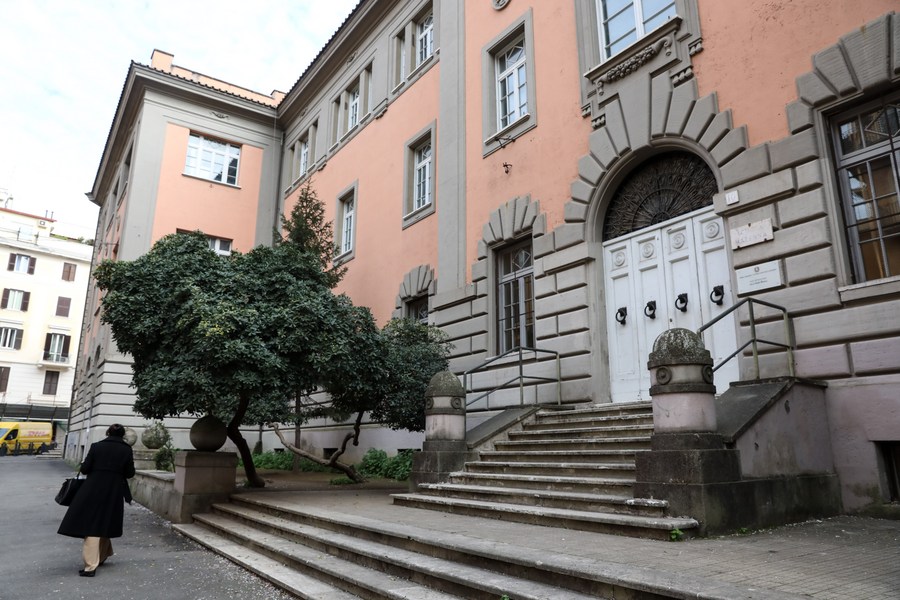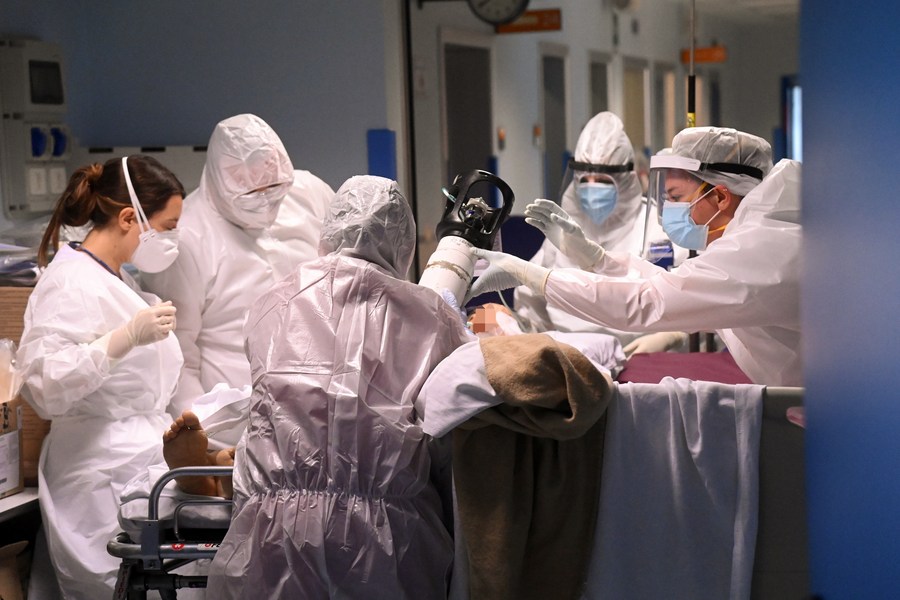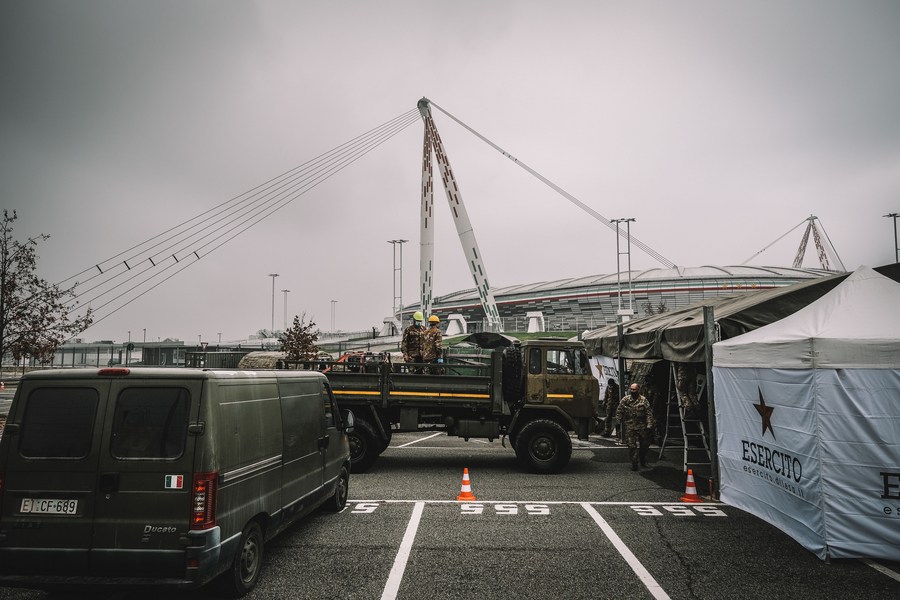
A woman walks past the closed Maria Montessori High School in Rome, Italy, March 5, 2020. (Xinhua/Cheng Tingting)
"Our students come from a wide geographical area and the space we have is limited and that helped us reach the decision to remain closed until the situation with the pandemic becomes clearer," said Antonio Nuzzo from the Accademia Guglielmo Marconi in an interview with Xinhua.
ROME, Nov. 15 (Xinhua) -- Italy is now deep into the second wave of the coronavirus outbreak, complete with an array of new restrictions and health measures. But for a few hundred schools in the country, the terms of the first wave never went away.
Italy was the first country in Europe to apply a national coronavirus lockdown, forcing schools to close along with restaurants and bars, gyms, and most offices. The lockdown worked, with infection and mortality rates trailing off from May. That was the month when the government started the process of methodically easing lockdown measures. By September, thousands of schools across the country reopened.
As infection rates began climbing again two months ago and surpassed spring peak levels in late October, some schools that had opened in September closed their doors again. In the southern regions of Campania and Apulia, local officials closed all schools, while in other parts of the country dozens of private schools chose to shut down.

Students enter a high school in Nembro of Bergamo province, Italy, Sept. 14, 2020. Millions of students returned to schools in Italy Monday. (Photo by Michele Maraviglia/Xinhua)
But there are a few hundred schools nationally that never re-opened.
"We were fearful of the virus returning and so when we were given permission to reopen, we decided it was best to stay closed," Jiang Zhonghua, the principal of the Zhong Hua School in Rome, told Xinhua. The Zhong Hua School, founded in 2006, teaches a Chinese language curriculum to around 200 students aged 7 to 17.
Antonio Nuzzo from the Accademia Guglielmo Marconi, a school of around 280 students aged 13 to 18 in northern Lazio, the Italian region that includes Rome, said the administrators at his school came to a similar conclusion. Nuzzo said students can still come to the school to use the library or laboratories, though there is a limit to how many can be on campus at any one time.
"Our students come from a wide geographical area and the space we have is limited and that helped us reach the decision to remain closed until the situation with the pandemic becomes clearer," Nuzzo said in an interview with Xinhua.
At least in these two cases, the measures seem to be working: Jiang said there have been no coronavirus infections among the students and faculty at the Zhong Hua school, while Nuzzo said his school has seen just two, both among faculty members who have since recovered.

Medical staff work at a COVID-19 unit of the Sant'Orsola-Malpighi Hospital in Bologna, Italy, on Nov. 12, 2020. (Photo by Gianni Schicchi/Xinhua)
According to Paola Bortoletto, vice-president of Italy's National Association of School Administrators, best known as ANDIS, every school does its best to balance coronavirus health requirements with the needs of students and their families.
"This is a major challenge, and there are many factors to take into account," Bortoletto told Xinhua. "Small children cannot stay at home alone, for example, and the benefits of being in school for them are less transferable to distance learning. Schools also have to determine how well they can adapt to staggered schedules and health monitoring and social distancing."
In Italian public schools, Bortoletto said, children under the age of six can attend with no face masks, while face masks are required for those aged 6 to 14. Those older than 14 have some level of at-home learning integrated into their curriculum.
The extent to which schools should be open is a topic of debate in Italy. In many cases parents want schools to stay open in part so they can work while their children are away. Nuzzo said that is a factor at his school even though students there are old enough to stay home alone if needed. But Jiang said she has had the opposite with the parents of students at the Zhong Hua School.
"I think Chinese families take the risks very seriously. We want to reopen, but we will only do so when everyone feels it is completely safe."

Italian Army soldiers work to build a Rapid Antigen Test spot outside the Juventus' Allianz Stadium in Turin, Italy, Nov. 12, 2020. The drive-through spot will be able to perform 1,000 antigen tests per day and whoever enters it will be swabbed without even getting out of the car. (Photo by Federico Tardito/Xinhua)■



